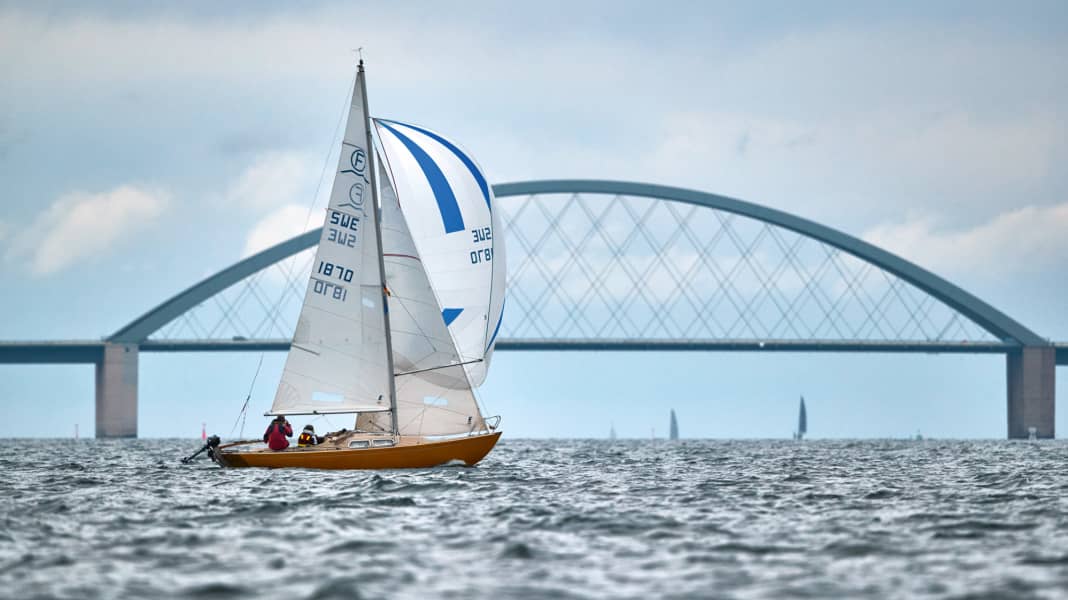Baltic Sea National Park: "There is no sailing ban" - exact restrictions remain unclear
Tobias Frauen
· 15.06.2023

In the context of the first of the seven workshops on the Baltic Sea National Park, there was a protest action by some farmers on the Fehmarnsund Bridge at the beginning of the week. The initiator was the "Free Baltic Sea Schleswig-Holstein" initiative, which campaigns against restrictions for water sports enthusiasts. Tobias Goldschmidt, who is pushing ahead with the national park plans as Environment Minister in Schleswig-Holstein, was annoyed by this in the "Bild" newspaper: "We are not bulldozers. On the contrary: we are travelling with a notepad to hear what the people on the coast want, what ideas they have," he is quoted as saying.
Goldschmidt emphasises to "Bild": "I'm saying quite clearly: there is no sailing ban." A sigh of relief for water sports enthusiasts? Not at all, because the big "but" follows immediately: it's about small restrictions, says the minister, citing as an example that anchoring should no longer be allowed on seagrass beds.
Apart from the example mentioned, however, it remains completely unclear to what geographical and legal extent restrictions are planned. In addition, the opportunities for sailors and other water sports enthusiasts in a national park could be gradually restricted over time. This would then be the responsibility of the federal government, which is less likely to have local interests and conditions in mind than regional authorities.
Goldschmidt's statements are not new
However, none of the things that Bild quotes Tobias Goldschmidt as saying are new. At the information event in March at the start of the consultations, the minister said in his closing words: "Sailing is part of our country's culture. Even in the core zones, I don't see why it needs to be banned!" YACHT reported on this in detail.
In the context of the national park, core zones refer to areas that are to be left completely to their own devices. This must be at least half of the national park area, which is where the greatest restrictions are to be imposed. Which areas will ultimately belong to the core zone and what will still be permitted there, whether sailors will still be allowed to use the coastal waters of Schleswig-Holstein as before, is completely open. It is already clear that angling or even fishing will be prohibited here. According to Minister Goldschmidt, nothing may be taken from or added to the core zone.
Increasingly drastic restrictions loom in the coming years
The core zone is to be followed by a development zone, which is to be developed into a core zone over a period of 30 years. The buffer to the outside world is then formed by a maintenance zone, which is expressly authorised for recreational purposes and can also be managed with restrictions, for example through sustainable fishing. In plain language, this means that it is already foreseeable that bans and restrictions will gradually be extended over the coming decades.
The topic of water sports is on the agenda for the workshops on 11 July. Numerous stakeholders and interest groups from the fields of sailing, windsurfing, kitesurfing, wingfoiling, diving and recreational boating will be present, including representatives of the "Free Baltic Sea Schleswig-Holstein" initiative. The findings from the meetings will then be pooled in a "dovetailing workshop" in October/November and finalised by the end of the year. According to the ministry's plan, a decision will be made in the second half of 2024.
The Wadden Sea National Park also brought a lot of uncertainty
Sailing in the land between the seas has been subject to severe restrictions before. In the Schleswig-Holstein Wadden Sea National Park, restrictions and even strict sailing bans have been in place since 1985. Far worse than the rules themselves, however, is the fact that they have been under negotiation ever since and have recently been revised with far-reaching consequences. Demands from the national park administration and conservationists for restrictions for sailors have been a permanent issue since the establishment of the national park, and it takes a great deal of voluntary commitment to at least maintain this unfortunate state of limbo as the least of all evils.

